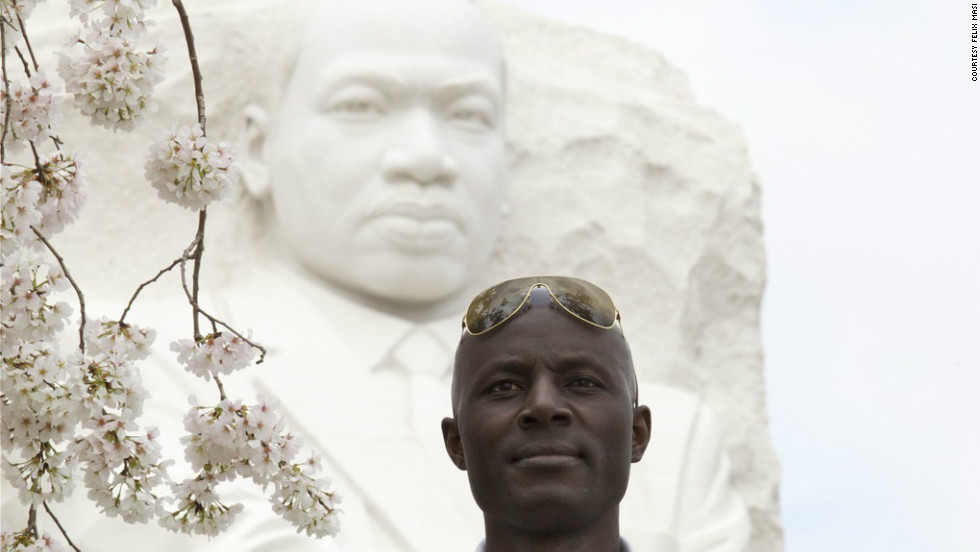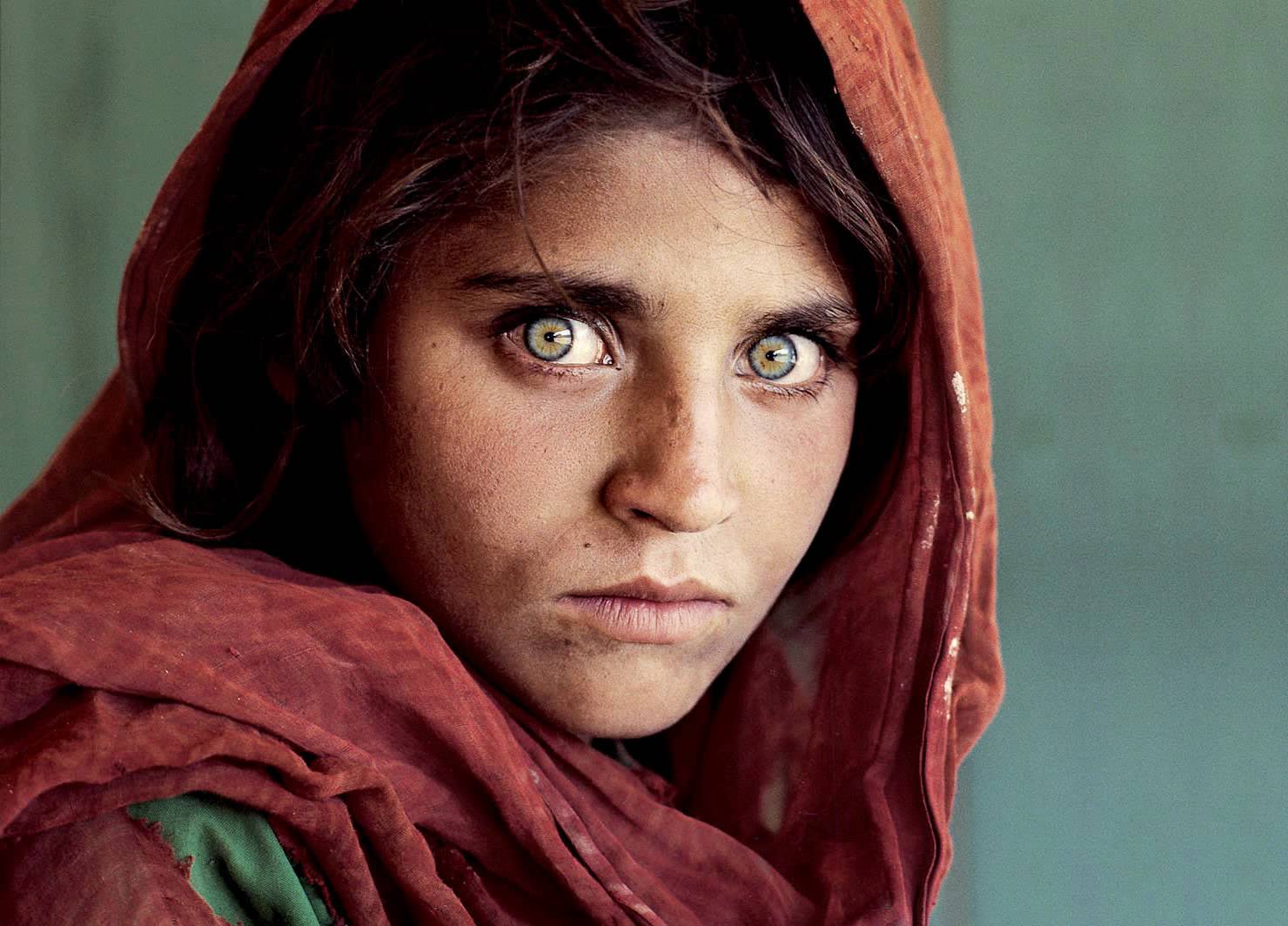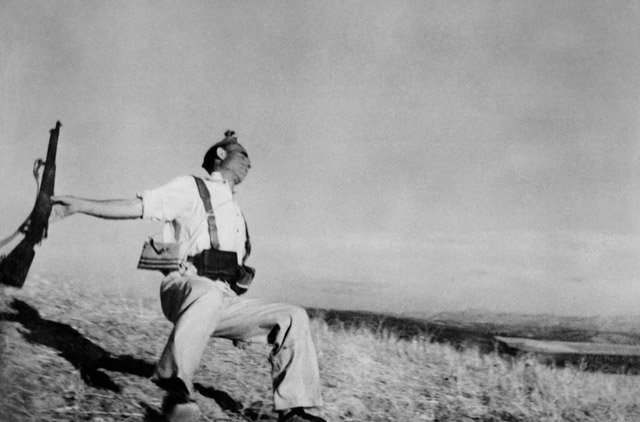Each photojournalist's story of what motivates them is different, and often times the reason is quite personal. Felix Masi, an awarded photojournalist from Kenya who lost his mother at the age of eight and was made an orphan along with his four other siblings. Growing up in a very poor neighborhood, Masi liked to take pictures in order to tell stories of people's suffering in hopes of them eventually getting aid and ridding them of their impoverished situation. Felix started off his photojournalism career working for a newspaper, but he eventually went freelance in order to specifically document situations in Kenya. Felix states that he found his motivation for photojournalism when he visited one of the largest slums in Kenya and in Africa as a whole: "I could just see suffering, and look myself, look back and say: 'Hey, this me today holding a camera. How well can I tell the story of these folks who are really just working hard so that they can get out of this object poverty, because people shouldn't be living like that.'" As I have already learned in these past few weeks, photojournalism is almost entirely about telling stories through the use of imagery and words to help back those photographs up. And as it turns out for Masi, the motivation can come from right at home, and not want to be abroad documenting the situations and lives of people from far away places.
Photo by: Felix Masi
Photo by: Felix Masi
Another well-known photographer is Steve McCurry. The name may not ring any bells for some who are more interested in the photographs rather than the photojournalists, but his work is instantly recognizable. McCurry has mostly based his work around Afghanistan, India, Pakistan, and the middle east region in general. Steve is not exactly in the prime of his life now at the age of 66, but he is still motivated to travel and try obtain more great shots that could potentially make history as his most famous photograph did in 1986. Like all photojournalists, his biggest thrill is the sense of life that pictures can potentially take on all on their own. On his website Steve McCurry is quoted as saying: "What is important to my work is the individual picture. I photograph stories on assignment, and of course they have to be put together coherently. But what matters most is that each picture stands on its own, with its own place and feeling." Furthermore, the travel is also what excites Steve, he enjoys the thrill of visiting a foreign country with a different social structure in order to gain and understanding and document the lives of people around the world and bring back the stories of his travels to the United States: "I have a passion and love for my work. I love to travel. I never get tired of going to new places and even places I’ve been. I’ve been to India more than 80 times, and I still get excited about going back. I think it’s the enthusiasm, the passion, the obsession with trying to do better and discover new things that keeps me motivated." Steve McCurry's motivation to make each photograph a story is very similar to what artists do, which is what most photojournalists consider themselves as a quote by Jocelyne Benzakin explains: "To me, photography is art," said Jocelyne Benzakin, who shows some of the most important photographers of the past century at the Sag Harbor Picture Gallery. "Art is anything you do with passion. It could be a chef that invents an incredible cake."
Photo by: Bruno Barbey
Photo by: Steve McCurry
One of the most famously known photojournalists of the twentieth century, who is not just known by his work but by his name as well, is Robert Capa. Robert Capa was born André Friedmann in Budapest, Hungary in 1913. However, due to the overpowering antisemitism gripping almost all of Europe at the time, he later changed his widely renowned name of Robert Capa. From a young age Capa was interested in politics, and because of this interest, he became a journalist which would be a short-lived career in Capa's case. One of the main reasons Robert would eventually switch from standard journalism to photojournalism is due to the fact that being from Hungary, Robert did not speak a commonly-known language which he found hindered his journalism career and prompted the change. A quote from Robert Capa describes his reasons for switching: "...was the nearest thing to journalism for anyone who found himself without a [widely spoken] language." Capa was also more interested in being a "free" photojournalist that could find stories that were of more personal interest to him rather than being given assignments: "In 1948 he had put into effect his long held dream of a cooperative photographic agency that would free photographers to concentrate on stories that interested them rather than spending their time scrounging assignments." In a lot of ways photojournalists that go to war and capture the images of war are often times then associated with the history that is being made at the time. As Stacy Pearsall, a retired Staff Sergeant explains: "As a combat photographer, I was a photographer to document them, but you know, inherently I became part of the story too. So I tried to kind of show, or convey my emotions through my pictures too in some way by use of light or shadows, or any sort of emotion I could."
Photo by: Gerda Taro
Photo by: Robert Capa
My motivations are certainly different from those of the various photojournalists I have learned about in the making of this blog post due to the nature of their work and the still very early point I am at in my life. However, the core motivations for any person to go the distance in order to achieve a goal that an average person who puts in a normal amount of work is still there. The idea of making your own personal creation build a life of its own is still a universal motivational factor amongst people. The connections that I found are that language can be an issue for anyone as Robert Capa found out. I have always had goals of living in another country, but only knowing English and Spanish has always been a hindrance for me. Also, I do not find much interest in doing simple tasks, the things that I like to do are unique and have more of a story to them such as what Steve McCurry has been described as liking to do. The differences I have found have more to do with photojournalism in general. Not being a photojournalist I do not have much motivation to travel the world and film crises, wars, and natural disasters that are going on around the world. My motivation has always been more streamline and domestic rather than specifically looking at jobs that have to do with traveling.
Photo by: Patrick Agit







No comments:
Post a Comment